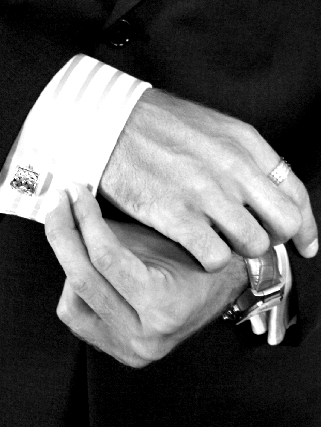Australia's corrupt credentials slide in federal vacuum
 Australia has moved out of the top ten least corrupt nations in a global ranking, and one legal expert says a federal-level commission is needed to clean out the local parties.
Australia has moved out of the top ten least corrupt nations in a global ranking, and one legal expert says a federal-level commission is needed to clean out the local parties.
The anti-corruption organisation Transparency International has placed Australia at No.11 in its Corruption Perceptions Index, ranking the “cleanness” of 174 countries.
Investigators say Australia has dropped for the second consecutive year as a result of “accumulating corruption scandals”.
Reserve Bank dodgy deals (that we are still not meant to talk about), state-level ICAC inquires and related scandals have driven Australia outside of the top ten.
The index does not measure actual corruption, but instead reflects international perceptions drawn from organisations including the New York-based Political Risk Services group and business surveys from the non-profit World Economic Forum in Geneva.
“There is no reason to continue to leave any Commonwealth agencies outside the jurisdiction of a properly resourced independent anti-corruption agency,” said Professor AJ Brown, a director of Transparency International Australia and a lecturer in public policy and law at Griffith University.
“We've got is that we see more and more issues of corruption being revealed...followed by a debate about the fact that we don't seem to be dealing with it very well and doubts about whether in fact sanctions and prosecutions and remedies are happening.”
Pointing to the pointed to the RBA case as a particular example, Professor Brown said it “continues to be denied that there was any problem with the oversight of those companies, and we've had no mechanism for resolving those questions”.
One of the strongest examples of the need for a federal corruption court came in an email exchange revealed in recent NSW ICAC investigations, which clearly showed federal LNP members were closely involved in the corrupt dealings of state-level party-mates.
The counsel assisting the NSW Independent Commission Against Corruption, Geoffrey Watson SC, says a national ICAC is need to root out the worst of the Commonwealth.
“I have seen things that show that federal politicians are not immune from temptation,” Mr Watson said at an international legal conference In Melbourne.
He said there was “nothing different in the air in Canberra” when it comes to misconduct by public officials.
Australia does have a small national anti-corruption body, the Australian Commission for Law Enforcement Integrity, but it can only probe misconduct in the Australian Federal Police, the Crime Commission and Customs and some other policing agencies.
It has no scope to deal with impropriety involving public servants or politicians.







 Print
Print